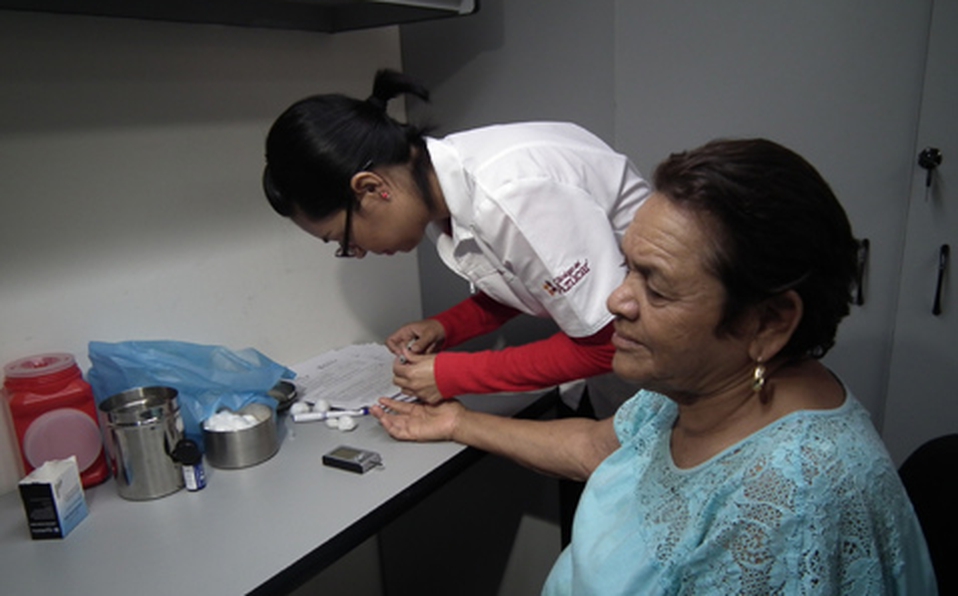ImpactAlpha, April 16, 2019 – Diabetes is both a preventable and manageable disease. Yet, because of changing lifestyles and health habits, the number of cases worldwide has nearly quadrupled since 1980.
Clínicas del Azúcar helps low-income diabetic Mexicans manage their disease more proactively and cost-effectively. The Mexican healthcare company aims to be a one-stop-shop for diabetes care, allowing patients to meet with doctors, nutritionists and psychologists at one central clinic and providing significant costs savings in the process.
Founder Javier Lozano launched the company in 2010 after a series of conversations with his mother, who herself struggled to manage her diabetes and the numerous appointments she had to keep with doctors and other specialists. “She was struggling like so many patients,” he told ImpactAlpha’s David Bank in February at the Foro Latinoamericano de Inversión de Impacto, or FLII.
Diabetes patients like Lozano’s mother number more than 12 million in Mexico—nearly 15% of the population, according to the International Diabetes Federation. “It’s a catastrophe. But the real catastrophe is the cost and difficulty of care,” Lozano says. It’s a huge burden on low income people in particular.
Affordable innovation
In 2011, Clínicas launched its first clinic in Monterrey, in the Mexican state of Nuevo León. It has since launched 11 more, has treated more than 20,000 patients, and has become the largest provider for diabetes and hypertension care in Mexico.
Patients who use Clínicas’ facilities pay an annual membership fee, and book one 90-minute visit at a time that allows them to see six specialists. It claims that this model cuts the cost of care by 60% and time patients ordinarily spent managing their disease by 80% because they can do all of their appointments at once.
Clínicas’ success at lowering the cost of care is something that Lozano is particularly proud of. “Typically innovations in healthcare increase costs, because they’re looking for the better technology. In terms of serving low-income patients, it [should be about] finding innovations that reduce costs,” he says. Healthcare should look to other industries, like manufacturing, where technology is used to drive efficiency and affordability. “The challenge is changing the mindset.”
Impact incentives
Clínicas is exploring new ways that it can do this. The company has leveraged a unique financing model, called social impact incentives (SIINC), to drive low-income patient intake and to raise $1.5 million in equity funding from impact investors. It is doubling down on clinic expansion with near-term plans to launch in three more Mexican cities. And it is exploring ways to use its vast troves of data to increase patient engagement without raising costs.
“We’re looking at behavioral sciences, and created a diabetes ‘launch lab’ [where we’re] testing interventions to help low income people make lifestyle changes, improve patient retention, and improve outcomes,” Lozano says.
Perhaps the best evidence of Clínicas’ success so far concerns its founder: Lozano’s mother was among the clinic chain’s first patients, who has since started a diabetes call center where patients can provide support to other patients trying to get their disease under control.
“It was the second transformation for her,” he says. “The first was being in control [of her diabetes] and the second is being able to help other patients.”











